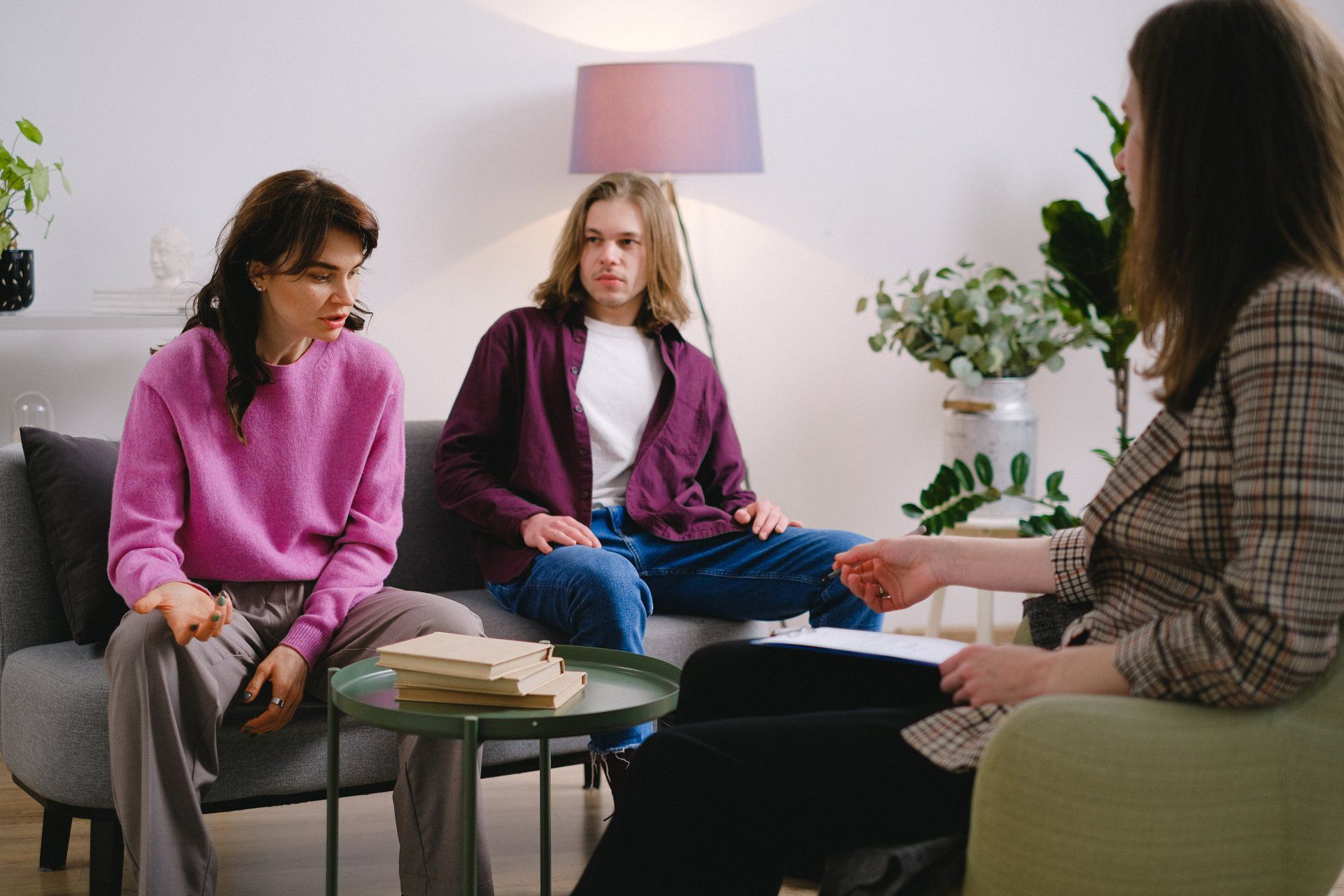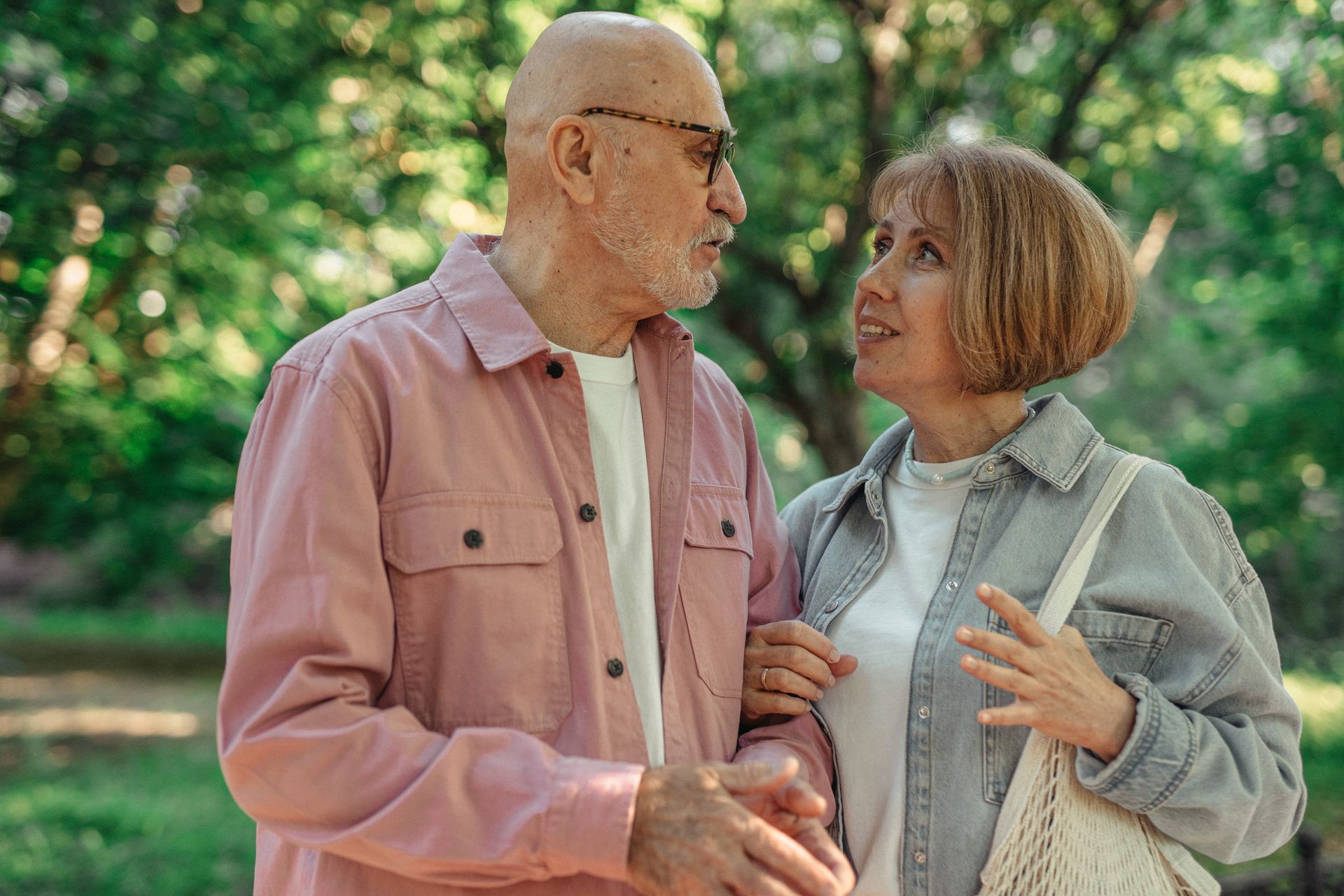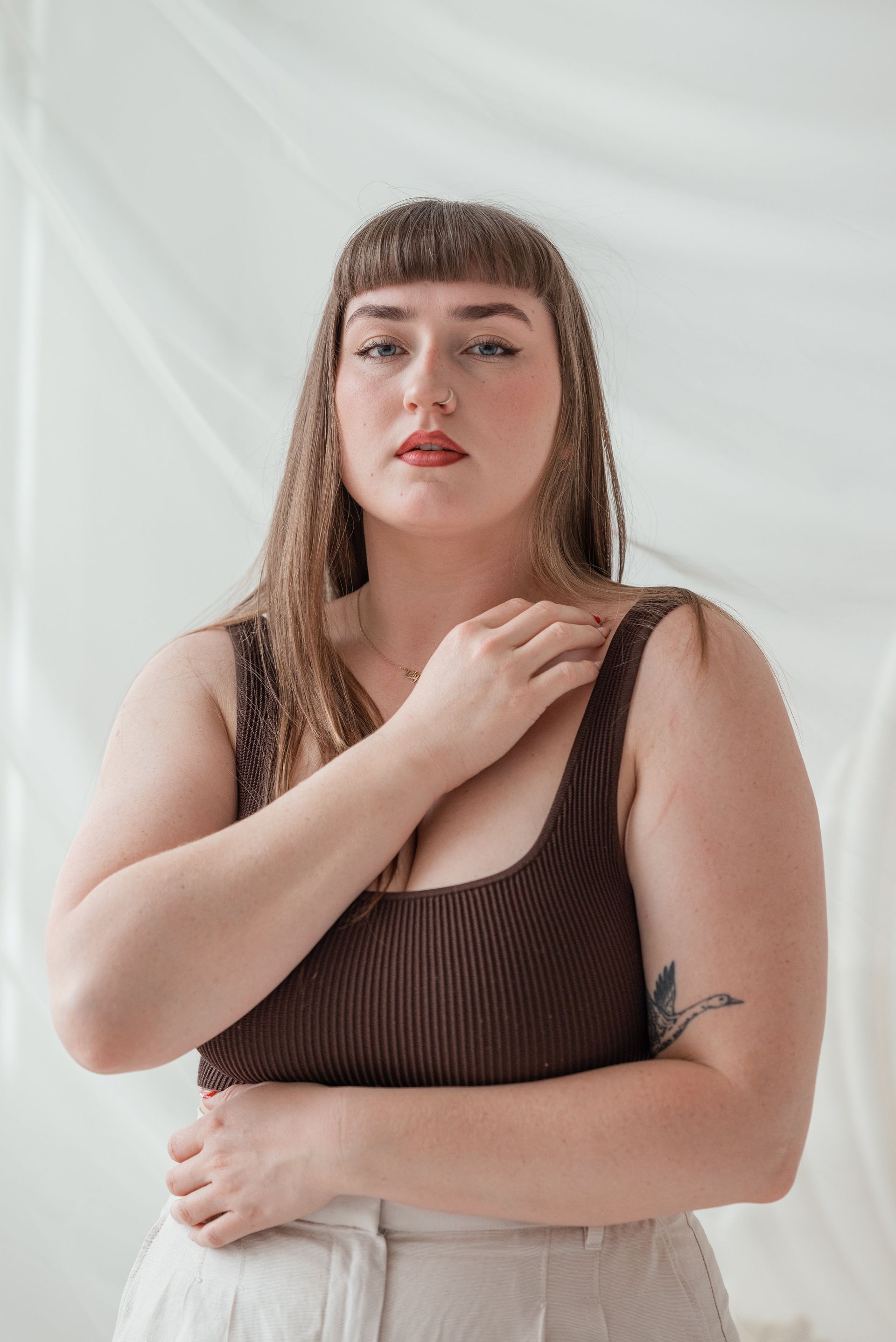Reading time: 13 mins
It’s always hard learning that someone you love is experiencing challenges in their life, especially when it’s something as pervasive and often misunderstood as binge eating. Most of us aren’t trained therapists or experts on binge eating and so it’s okay if you’re unsure of how best to support them. It’s wonderful that you’re here and looking to understand!
This article is a very open interview with my ex-partner of 12 years and now close friend Mark, from the perspective of being in a romantic relationship.
In it, he’s not only sharing how he supported me in my recovery, but he’s also being very honest about how my body image and binge eating impacted our relationship. This isn’t easy for either of us to share, but in doing so we really hope it’ll help other couples to not make the same mistakes we did.
If you’ve not already, I recommend you read these two pieces which this article follows on from before going further:
“Someone I love struggles with binge eating, how can I help them?” Part 1
"How do I tell someone I love about my binge eating?" Part 2: an interview with my ex-partner
We both hope that these combined resources will help you feel understood in the position you're in, and even more importantly, prepared and reassured that you can be of great support to your loved one.
Lucy: “Thanks for agreeing to answer some more questions, Mark. Firstly, what are the most important ways you feel you supported me when I was struggling with binge eating and my body image?”
Mark: “I feel like this is really a two-part question: 1) about your body image, which I knew about from fairly early on; 2) about your binge eating, which I knew about towards the last part of our relationship.
On the body image side
(mostly from before I knew about the binge eating):
I encouraged and partly paid for you to go to counselling, which you said helped you with your anxiety, and that seemed to be the case from my impression of how you were. I knew that all of these things are linked, so that was quite a good step forward.
When you needed it, I gave you respectful privacy (at what I felt were the right times). This was purely an instinctive thing on my part, e.g. if I felt you were more / less vulnerable that day I’d make more / less effort to either be looking elsewhere or out of the room when you were undressing, and so on. Probably this was an area that an early visit to a relationship counsellor could have helped me be better at (more on that soon). A shorter way of saying all this is that I tried extra hard to consciously practice being empathetic.
On the binge eating side:
I think I was good at realising and accepting (with zero blame or negativity towards you) pretty much immediately after you told me about your binge eating that fixing something of that nature was going to take longer to resolve than my previous expectations, when I thought it was “just” anxiety and body image issues (I say “just” because they’re obviously both still very unpleasant to suffer from).
I also quickly came to the conclusion that my previous approach, although devised with the best of intentions and with the knowledge I had at the time, wasn’t quite right, and that I needed to give you even more space to work through this yourself, with only subtle and occasional helpful suggestions. Of course, different people work in different ways, so the best thing to do is keep calibrating with your partner whether you’re handling things in a style that they feel is helping them the best.
Linked to my previous point, I accepted that there would be a longer term impact on our sex life and other aspects of our relationship than I’d previously anticipated. I decided that as long as I felt there was a gradual step forward in progress every year (realising there would be ups and downs along the way) then I could train myself to handle those challenges for the greater long-term good.
On the other hand, I was open with you - in what I felt was a clear but considerate way - that there were problems in our relationship that needed fixing. So I tried hard to balance being open about the impacts on our relationship with being empathetic with your situation. Not easy to do!
Relating to both body image and binge eating, I tried to be empathetic, sensitive and tactful about things I said, so as not to indirectly or inadvertently make you feel bad. I don’t mean talking about your appearance, but more about topics of general conversation and how I phrased things. To be clear, I didn’t feel like I was treading on eggshells or anything like that. It wasn’t a significant effort or challenge :)”
Lucy: “This isn’t an easy question, and you’ve mentioned some already, but what challenges did my binge eating disorder bring up for you and our relationship?”
Mark: “There were a mixture of impacts: some days you were down, or lacked mental energy, because of what you were going through. Our sex life was significantly affected. I also felt guilty at times about my eating behaviour, as I don’t think that always helped you
(reader: I definitely like a sweet treat and those were the main moments when my empathy wasn’t there).
During more difficult periods, these challenges caused me severe existential angst about our relationship, e.g. does a couple need a significant sex life to have a long-lasting relationship when the other aspects are mostly so amazing? Or the frustration of having days where I had lots of mental and physical energy but you didn’t. I had a few rather tortured periods wrestling with these things.
I never held any of this against you at all, but it still impacted our enjoyment of and energy for life at times.
The way I dealt with my existential angst was by likening it in my head to if you had been in a really bad car accident and various aspects of our relationship had been negatively impacted by you having a (purely hypothetical!) terrible physical injury. Would I have just ditched you in that situation? No! And society would have very reasonably regarded that as awful behaviour. I strongly believe we should apply that principle to any kind of accident or illness - whether they be mental or physical. After coming up with this strategy of managing my feelings and frustrations I got into an okay-to-good situation where the bad times were less bad, and they happened less often.
Ultimately, you having a binge eating disorder, combined with me not knowing fully until 8 years in, did put us on the path to the eventual breakup. But, as I explained in the first part of the interview, all of this started due to bad luck, and I did (and do) feel that the way things worked out was perfectly understandable. No blame here. That’s one of the valuable things that can come from this interview: I believe if we’d seen this sort of advice within the first 4 years of our relationship then we might well have made very different decisions that had a better long-term result. Now we only have hindsight, so neither of us should be blamed for that. I hope that others can learn from our experiences and be as happy as they can be :)”
Lucy: “I believe that communication is really important here but I also know that historically, as our dear reader can likely tell, communication wasn’t my strong point! You on the other hand were much better. What’s worked well for you when it comes to these difficult conversations?”
Mark: “Lucy will probably roll her eyes affectionately at hearing this for the millionth time (in a myriad of different contexts) 😛 But, in my experience, being open is either the most important or equal-most important part of having a successful relationship that lasts more than a few years. The main analogy I use for this is that having a difficult conversation is similar to getting vaccinated against a serious disease: it’s unpleasant and inconvenient, but if you don’t get that vaccination then it will likely turn into a case of you having the full-blown disease. The same principle applies to difficult conversations and the impact of not having them.
Taking the plunge is by FAR the hardest and most important part. Yes, it wasn’t one of your strengths to do that
(although, reader, you should know that Lucy has many different talents and strengths), but when you eventually told me about your binge eating you did an amazing job.
Another way of thinking that’s helped me have difficult conversations better than anyone I know is that years ago, by luck more than skill, I stumbled across the truism that we’re effectively being selfish if we don’t tell someone something they don’t want to hear - especially if it involves the other person having a weakness, making a mistake, or similar. Because the reason for us not doing it is usually that we don’t want to feel bad about making them feel bad. But we owe it to them to do that! That is exactly what we should do when we care about someone.
Keeping these principles firmly in our minds in everyday life makes taking the plunge into having a difficult conversation so much easier! I say easier because it’s still not easy. But the difference is huge.”
Lucy: “Being there for someone who is struggling with binge eating can be challenging. What did you find supportive for yourself, whilst you were there for me?”
Mark: “I mostly kept everything to myself to respect your privacy but I did - with your general permission - tell a couple of friends and family some of what was going on. It was very good of you to say you were okay with me doing that. I appreciated it so much, and it did help during the most difficult period for me personally.
Other than that, I tried to take enough time to process my thoughts and feelings, to get clear in my head what I wanted, how I could deal with things, and how I could support you in the best way. Definitely do make time for these activities if you are trying to support a loved one with a binge eating condition. It’s so important!”
Lucy: “What’s the biggest piece of advice would you give to someone who’s wanting to help their loved one with binge eating?”
Mark: “I’m going to cheat and give three!
- Get professional help as soon as you discover about your loved one’s binge eating. Whether it be from a counsellor, a binge eating specialist, or ideally both of them and more. Work on building extra knowledge and skills to be the best you can be at performing that supportive role. The same applies to you both as a couple.
- Be incredibly open (though tactful) about your thoughts and feelings, and encourage your partner to do the same. If you don’t feel fairly uncomfortable at times with how open you’re making yourself be then you’re almost certainly not being open enough and are storing up major problems for the future. Please be brave and both say as much as you can!
- Give your loved one space to work through things at their own pace. We can’t force people to solve these sorts of problems, and we can’t solve those problems for them. They have to be ready and, ultimately, they have to do it themselves. Though of course do give plenty of moral and practical support in ways that suits what they want; and do be brave if things are clearly in a place where the other person needs to be told something they don’t want to hear. Just sanity check your feelings and method of communication to make sure you’re doing the right thing in the right way (that will truly help them overall).”
Lucy: “I know that lots of this hasn’t been easy to talk about so thank you from the depths of my heart for being so open. Is there anything else you’d like to share?”
Mark: “No, thank you. I feel like your questions got all the key points out of my brain :)”
Want insights like this delivered to your inbox?
Sign up to
Inbox Reflections - short, heartfelt emails to support your binge eating recovery as a highly sensitive woman.
Gentle reminders, thoughtful questions, and steady guidance - sent each weekday.
Want more? Take a look at these guides and articles to further support your loved one
By Lucy Newport
•
November 26, 2025
Discover how low self-worth drives the binge restrict cycle and why Highly Sensitive People (HSPs) can be particularly vulnerable. Learn to reclaim your innate worth.
By Lucy Newport
•
November 4, 2025
Highly Sensitive Person (HSP) struggling with night time binges? Discover the root cause of evening binge eating and how to finally find freedom. Read here.
By Lucy Newport
•
April 2, 2025
Wondering if binge eating is connected to being a Highly Sensitive Person? This article explores the links between the two and shares an approach to recovery for you.
By Lucy Newport
•
July 17, 2024
Reading time: 6.5 mins Perhaps you’ve found your way to this page because you’ve noticed that you use food to comfort yourself when emotions like stress, sadness and boredom come up. Maybe you’re feeling like your emotional eating is out of control at times and that just worries you more. And perhaps you’ve heard the term “binge eating” and you’re wondering if that’s in fact what you’re doing. If so, you’re in the right place. In this article, we’ll look at exactly what emotional eating and binge eating are and their main differences. For those of you who resonate with being a highly sensitive person, an empath or someone who just feels things in a big way, we’ll also look at how this sensitivity can play into emotional eating and binge eating. This is all about better understanding your own behaviour so that you can expand your ability to be with uncomfortable emotions, improve your relationships with food and your body and even get the right support for you on this journey, if that’s what you want. Now, take a nice long and full breath and let’s explore… What is emotional eating?
By Lucy Newport
•
March 4, 2024
Explore the definitions of ‘binge eating’ and ‘compulsive eating’, how they differ and which term best reflects your experiences with food.
By Lucy Newport
•
February 14, 2024
Here’s a personal story to help you get out of your own way and seek support in your binge eating recovery.
Disclaimer: The content on this page is for educational and informational purposes only and is not a substitute for professional medical or mental health advice, diagnosis, or treatment. Always seek the advice of your physician or other qualified health provider with any questions you may have regarding a medical condition or mental health issue. Do not disregard professional medical advice or delay in seeking it because of something you have read on this page.










